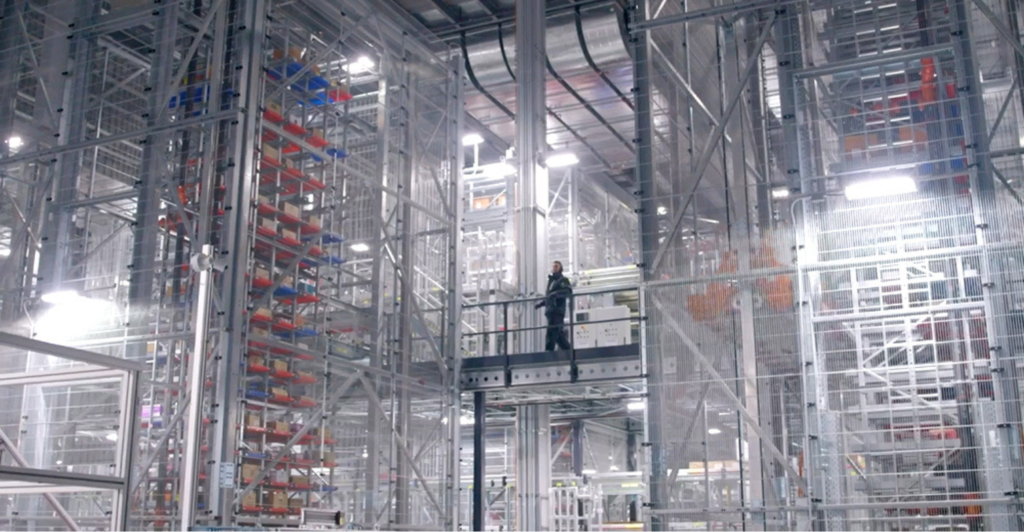In a move expected to streamline labor and improve speed-to-shelf, Walmart is adding four highly automated perishable distribution centers around the country and adding automated technology to five others.
The technology, which includes an automated storage system nearly 80 feet tall in a temperature-controlled environment, will help build pallets that are engineered to optimize efficiency for merchandising at the store level and minimize product damage, Dave Guggina, executive VP of supply chain operations, Walmart U.S., said in a blog post.
“We’re adding state-of-the-art tech to our facilities … to enable greater speed and capacity that allows us to serve customers even more reliably,” he said.
For example, the automated DCs can store twice as many cases and process more than twice as many cases per hour than a traditional perishables DC, Guggina said.
Walmart has operated one such automated perishables DC in Shafter, Calif., since 2021, and it is ramping up another in Lancaster, Texas. Additional DCs are planned for Wellford, S.C.; Belvidere, Ill.; and Pilesgrove, N.J.
Walmart is also expanding four of its traditional perishables DCs by adding more than 500,000 square feet of automation per site to increase capacity for fresh products. These facilities are located in Mankato, Minn.; Mebane, N.C.; Garrett, Ind.; and Shelbyville, Tenn.
The company also plans to renovate its Winter Haven, Fla., perishables DC to retrofit the facility with automated technology.
“Our goal is to learn more about the feasibility and requirements of retrofitting an existing grocery building with automation technology,” said Guggina.
He cited an automated ambient-temperature DC the company recently renovated in Brooksville, Fla., which includes expensive robotics, as an example.
The moves come as Walmart has increasingly focused on the quality of its perishables offering to better compete with traditional grocers, which the company said has been helping drive sales.
Guggina said that the automated facilities, which reduce the need for manual labor, can also create rewarding, higher-paying jobs such as automation equipment operator, automation control center operator, automation technician, or automation area manager.
“Technology is evolving physically demanding jobs into roles where associates are operating and maintaining high-tech systems, leading to an improved quality of life,” he said.


